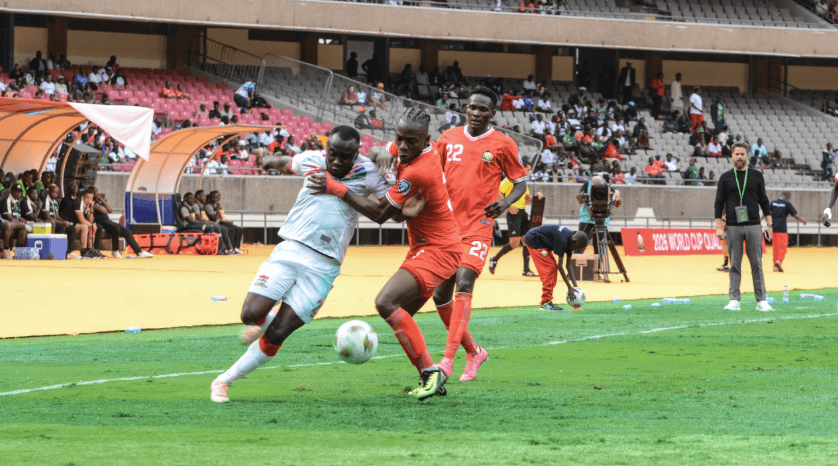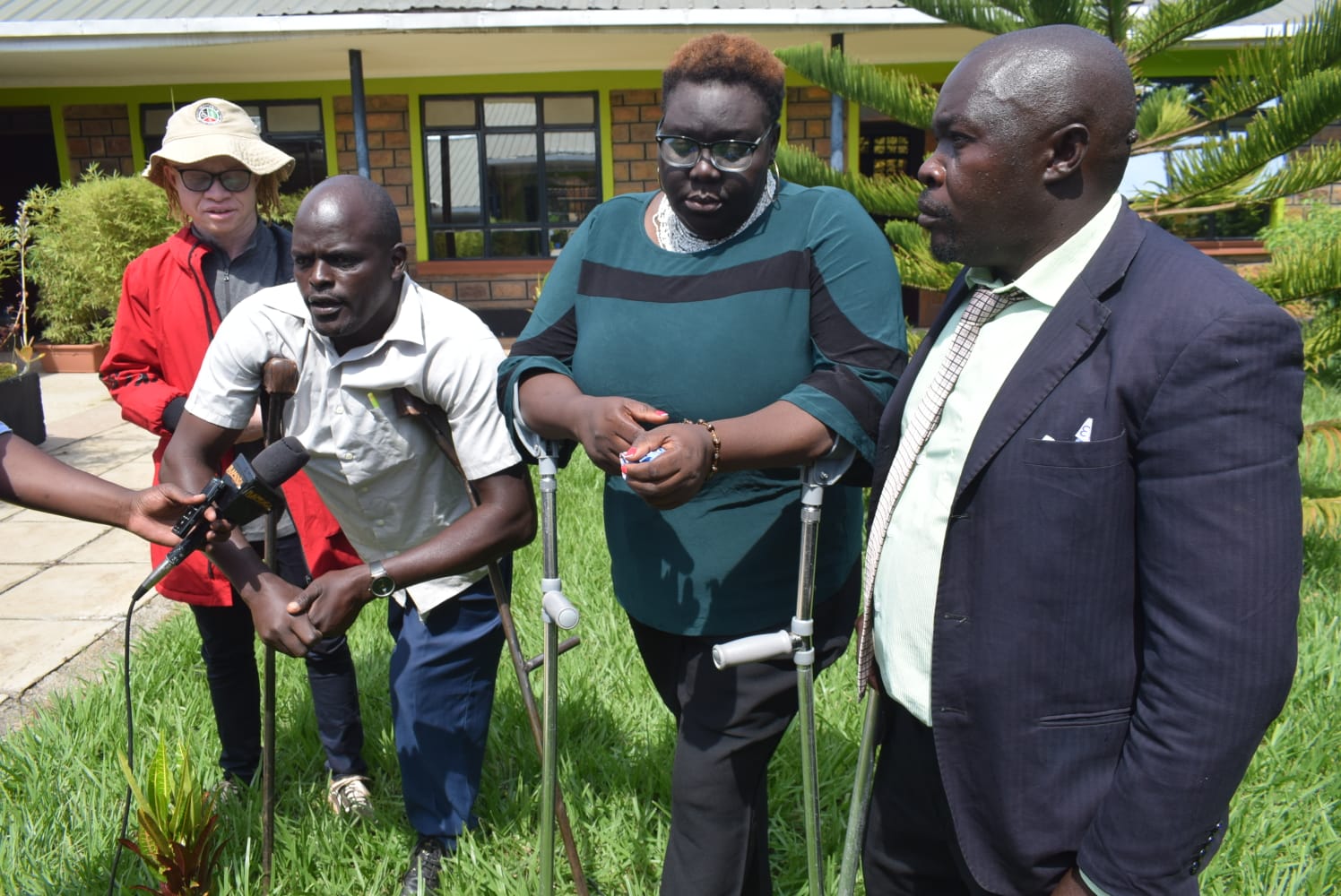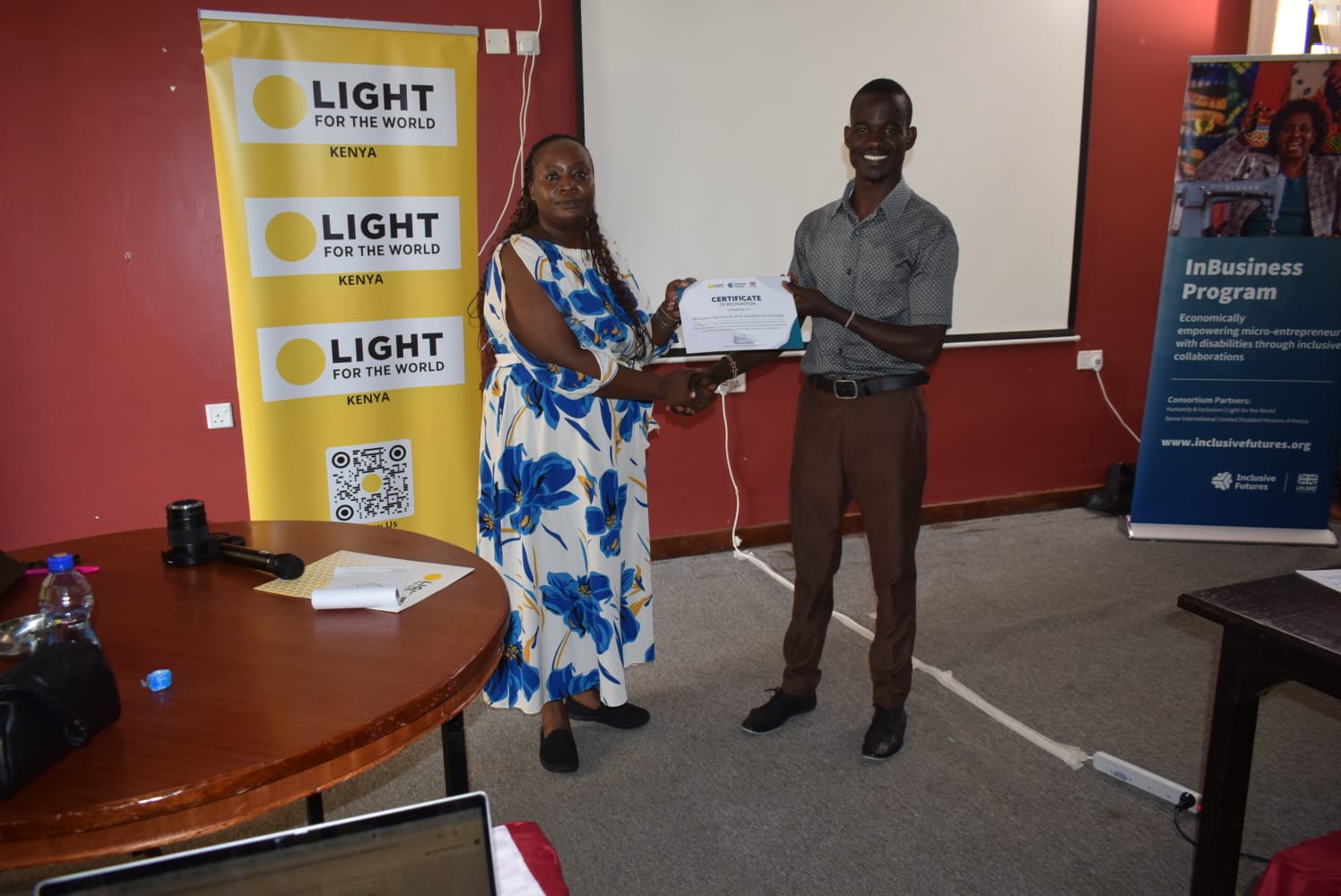
How PWDs can access Kasarani for Tuesday match
They will also be allowed to use VIP and VVIP lifts.
Beneficiaries Caleb Ouko, Lorine Otieno, and Ramjius Radila said they have since ventured into more profitable businesses after the training.
In Summary

Audio By Vocalize

More than 355 Persons With Disabilities (PWDs) in Homa Bay
are now expected to operate their businesses smoothly after completing the
required training.
The PWDs, who were already engaged in various
entrepreneurial ventures, were trained on financial management, record keeping,
and customer communication.
The 10-month training was implemented by Light For The World
(LFTW) in partnership with United Disabled Persons of Kenya (UDPK), Sense
International, and Humanity & Inclusion under the initiative dubbed
InBusiness Programme.
LFTW Head of Programmes Lucy Murage said the project was
initiated after realizing that people with disabilities were facing numerous
challenges, including a lack of business skills, market linkages, and financial
support.
She said the programme aimed to address the gaps that many
PWDs faced in running their businesses. Some participants received grants of up
to Sh40,000 to start or expand their enterprises.
“The capacity building was meant to enhance their ability to
overcome challenges that PWDs face when doing business. We also focused on how
to fight discrimination associated with disability,” Murage said.
Speaking during the closing workshop of the programme in
Homa Bay Town, Murage noted that the project had recorded positive results.
Some business operators can now make up to Sh50,000 in monthly profits compared
to less than Sh10,000 before the training.
LFTW’s impact evaluation also showed that business skills
and knowledge among PWDs in Homa Bay increased from 10 percent to 80 percent.
Accompanied by Homa Bay Disability Forum Secretary Jacob Omoro, Murage said the programme’s sustainability is assured since participants have acquired adequate skills to start and manage businesses of their choice.

According to her, the group now understands how to advocate
for their rights and seek market opportunities, with the Homa Bay County
Government committing to support them.
“The model for the InBusiness Programme was designed to
address the gaps that people with disabilities face. PWD organizations,
micro-entrepreneurs, and government partnerships will ensure sustainability,”
she said.
Omoro noted that the programme has promoted self-reliance
among PWDs in Homa Bay, reducing the dependency and begging culture often
associated with disability.
“Most PWDs in Homa Bay are now able to support their
families and educate their children,” he said.
He added that some trained beneficiaries have been
identified to train youths under the National Youth Opportunities Towards
Advancement (NYOTA) programme launched by the Kenya Kwanza government.
“The programme has proved that disability is not inability.
Most PWDs who have been trained are now able to start and operate their
businesses without difficulties,” Omoro said.
Beneficiaries Caleb Ouko, Lorine Otieno, and Ramjius Radila
said they have since ventured into more profitable businesses after the
training.
Ouko, who now supplies Kenya Breweries Limited (KBL) with
sorghum, said the initiative had transformed his farming venture.
“I do large-scale sorghum production and I make good
profits. I thank Light For The World for the capacity building,” he said.
Other beneficiaries are engaged in carpentry, poultry keeping, tailoring, and shopkeeping, all testaments to the growing economic independence of PWDs in

They will also be allowed to use VIP and VVIP lifts.